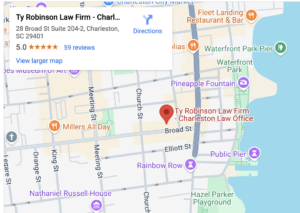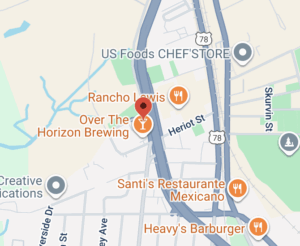Ty Robinson | October 22, 2025 | Personal Injury

Negligent entrustment is a legal doctrine that holds someone (the “entrustor”) responsible for injuries or damages caused by another person (the “entrustee”). The basis for a claim is that the entrustor knows or should have known that the entrustee was likely to use an entrusted item in a dangerous or harmful way.
This concept may be relevant in personal injury law. For instance, a vehicle owner may be held liable for a car accident caused by a driver they allowed to use their car if the owner knew the driver was unfit, inexperienced, or reckless. This blog explores the legal concept of negligent entrustment and how it could help you with a personal injury case in Charleston, SC.
Legal Standards for Negligent Entrustment in South Carolina
In South Carolina, negligent entrustment is a rule that holds someone accountable for allowing another person to use a vehicle or dangerous item when they knew—or should have known—that person was likely to use it carelessly or unsafely.
For example, if a vehicle owner lends their car to someone who has a history of drunk driving, no valid license, or a record of reckless behavior, the owner could be found liable if that driver causes an accident. The reasoning is that the owner had a duty to act responsibly when deciding who could use the vehicle.
To prove negligent entrustment, an injured person generally must show that:
- The person who loaned the vehicle had control or authority over it.
- The driver who received the vehicle was known (or should have been known) to be unsafe or unfit to drive.
- That unfit driver caused an accident that injured someone.
Essentially, the law is designed to encourage responsibility and prevent avoidable harm by ensuring that vehicle owners think carefully before handing over their keys.
Elements of a Negligent Entrustment Claim in South Carolina
To prove negligent entrustment in South Carolina, a plaintiff must generally establish the following legal elements:
- Duty of Care: The entrustor had a duty to exercise reasonable care when entrusting a dangerous object to someone.
- Breach of Duty: The entrustor breached their duty of care by entrusting a dangerous object to someone they knew or had reason to know was likely to cause harm.
- Causation: The injuries were directly and proximately caused by both the entrustee’s negligence or intentional acts and the entrustor’s decision to allow the entrustee to use the dangerous object.
- Damages: The injured party suffered damages and losses because of the harm caused by the dangerous object.
Let’s look at an example. Suppose a parent knows their teenager has a history of reckless driving. Yet, the parent still allows them to borrow the family car. The teen causes a serious accident. As a result, the parent could potentially be held liable for negligent entrustment.
Another example of negligent entrustment could include entrusting a firearm to someone else. For instance, a person gives a firearm to someone who has been judged incompetent to manage their own affairs or is currently prohibited from possessing a gun because of domestic violence.
What Compensation Is Available for Negligent Entrustment Personal Injury Claims?
Injured victims can seek compensation for a variety of damages.
You may receive compensation for economic damages, including:
- Medical bills
- Lost wages
- Diminished earning capacity
- Rehabilitative therapies
- Out-of-pocket expenses
You may also receive non-economic damages for pain and suffering. These damages also include a loss of enjoyment of life or quality of life, impairments, disfigurement, and emotional distress. The amount you receive for a personal injury claim depends on numerous factors, including the strength of your arguments for negligence and liability.
Contact the Charleston Personal Injury Lawyer at Ty Robinson Law Firm for Help Today
Personal injury claims involving negligent entrustment are complex legal cases. Although negligent entrustment is a well-established legal principle in South Carolina, proving the necessary elements to win a case can be challenging. You need an experienced personal injury attorney to evaluate the facts, gather evidence, and help protect your rights under South Carolina law.
If you were injured in an accident in Charleston, South Carolina, and need legal help, contact our Charleston personal injury lawyer at Ty Robinson Personal Injury & Car Accident Law Firm to schedule a free case review today.
Ty Robinson Personal Injury & Car Accident Law Firm
28 Broad St Suite 204-2
Charleston, SC 29401
(843) 278-2222



